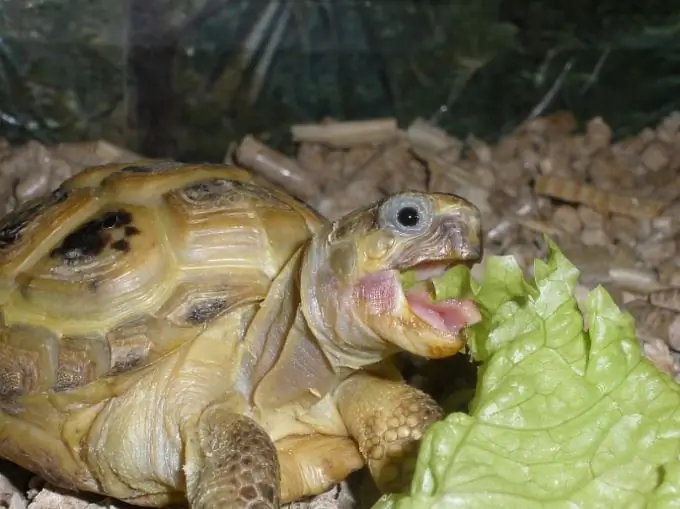- Author Delia Mathews mathews@animalspeace.com.
- Public 2023-12-16 00:05.
- Last modified 2025-01-22 15:45.
The diet of turtles living at home must be monitored very carefully. Some foods are contraindicated for turtles. There are some that can be given, but in very small quantities.

Undesirable food for turtles
Tomatoes and feeds with a high phosphorus content - they interfere with the absorption of calcium.
Strumogenic plants - capable of causing iodine deficiency. These are cabbage of different varieties, turnips, radish, mustard, radish.
Plants with a rich content of oxalates interfere with the absorption of calcium in the intestine - this can lead to the development of pseudo-gout. These include cabbage and spinach, rhubarb, peas, bean sprouts.
Purine foods can trigger true gout - asparagus, spinach, cauliflower, mushrooms, pineapples, oily fish, kidneys, and raw liver.
Don't feed your turtles with celery and potatoes, garlic and onions, don't give rhubarb, crucifers, basil and thyme, cherries and pears. In large quantities, lettuce, sweet fruits, dry turtle food, nuts are undesirable.
Foods harmful to turtles
Plants containing alkaloids, hydrangea, lily, jasmine, mistletoe, lupine. Radish, citrus peel, fruit pits.
Do not feed turtles food that is not intended for them. Products from the human table are especially harmful for them - in turtles, the intestinal tract is not able to digest meat that has undergone heat treatment. Proteins are denatured in this case, and the enzymes of the turtles cannot break them down. Also, do not feed land animals with food intended for waterfowl, and vice versa.






